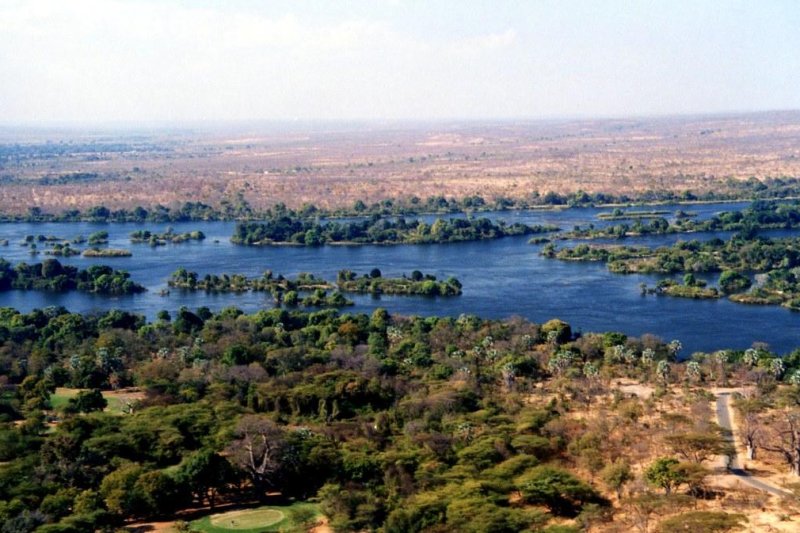In a new study, a team of geneticists claim the mitochondrial DNA in living indigenous populations points to an area south of the Zambezi River as the ancestral homeland of modern humans. Photo by
Carine06/Flickr
Oct. 29 (UPI) -- The earliest ancestors of anatomically modern humans, Homo sapiens sapiens, emerged in southern Africa, according to a new study published this week in the journal Nature.
"It has been clear for some time that anatomically modern humans appeared in Africa roughly 200 thousand years ago," lead researcher Vanessa Hayes, a professor of human genomics at the Garvan Institute of Medical Research in Australia, said in a news release. "What has been long debated is the exact location of this emergence and subsequent dispersal of our earliest ancestors."
Hayes and her colleagues used mitochondrial DNA samples from indigenous Africans to trace the human family tree back to its roots. According to the genetic analysis, the earliest modern humans emerged in an area south of the Zambezi River, in what's now Botswana.
"Mitochondrial DNA acts like a time capsule of our ancestral mothers, accumulating changes slowly over generations," Hayes said. "Comparing the complete DNA code, or mitogenome, from different individuals provides information on how closely they are related."
Using genetic samples from indigenous populations in South Africa and Namibia, scientists bolstered the catalog of modern human's earliest mitogenomes, a genetic lineage known as L0.
"We merged 198 new, rare mitogenomes to the current database of modern human's earliest known population, the L0 lineage," said Eva Chan, first author of the new study and a researcher at the Garvan Institute of Medical Research. "This allowed us to refine the evolutionary tree of our earliest ancestral branches better than ever before."
By analyzing the linguistic, cultural and geographic distributions of different L0 sublineages, the study's coauthors claim to have pinpointed the origins of the earliest modern humans. The area researchers identified is now covered by salt flats, but it was once home to a massive lake and surrounded by lush vegetation.
The genetic analysis showed the first modern humans began to leave their homeland and disperse between 130 and 110 thousand years ago. Scientists used geologic data and climate models to predict the impact of ancient climate changes on the earliest migrations by modern humans.
"Our simulations suggest that the slow wobble of Earth's axis changes summer solar radiation in the Southern Hemisphere, leading to periodic shifts in rainfall across southern Africa," said study co-author Axel Timmermann, climate scientist at Pusan National University. "These shifts in climate would have opened green, vegetated corridors, first 130 thousand years ago to the northeast, and then around 110 thousand years ago to the southwest, allowing our earliest ancestors to migrate away from the homeland for the first time."
The bold conclusions of the new study have garnered criticism from other scientists in the field.
"Like so many studies that concentrate on one small bit of the genome, or one region, or one stone tool industry, or one 'critical' fossil, it can't capture the full complexity of our mosaic origins," Chris Stringer, researcher at the Natural History Museum, London, told LiveScience.
In recent years, studies examining the earliest chapters of human history have mostly complicated attempts to trace Homo sapiens to a single ancestral homeland. The newest claims run counter to the trend, and they've inspired some criticism.
"You can't use modern mitochondrial distributions on their own to reconstruct a single location for modern human origins," Stringer told BBC News. "I think it's over-reaching the data because you're only looking at one tiny part of the genome so it cannot give you the whole story of our origins."
Several other researchers have voiced similar concerns, calling the findings problematic and outdated.
"It is not possible to make inferences about the geographical origin of modern humans in Africa based solely on patterns of variation in modern populations," Sarah Tishkoff, a geneticist at the University of Pennsylvania, told the Guardian. "This is because humans migrate over long distances. They migrated out of Africa and across the globe within the past 80,000 years and they have migrated across Africa in the recent and ancient past."















